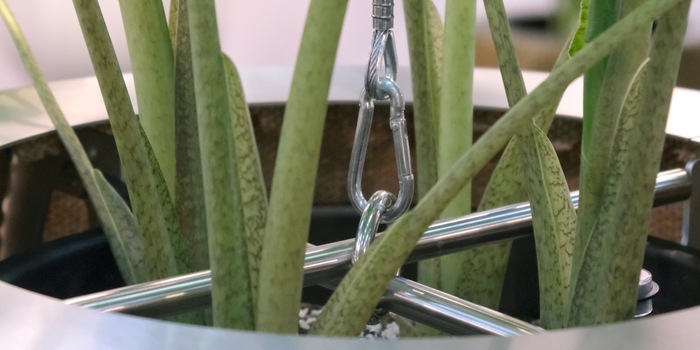
These are the things I remember from the Zurich furniture fair "Neue Räume"
Plant boxes as room dividers, colourful chairs and stackable designs: my highlights at the "New Spaces" interior exhibition.
"New Spaces" is back. After a break from Corona, the international furniture fair welcomed design enthusiasts back to Zurich-Oerlikon and impressed me with all kinds of things. Among other things, the fact that it's worth putting different coloured chairs at one and the same dining table. Or that lush plants can do more than just stand around.
1. Floating
Still, most plants are standing around in our rooms. But they could soon be hovering above us. Cosmos Design has developed a hanging plant container "Merkur" to bring Monstera and Co. into the air. The biophilic design studio is thinking a bit bigger than I know it from Pendularis. Instead of a few small plants in front of the window or on the wall, with "Mercury" you can hang any large houseplant in the room. Because the biophile design studio believes that interiors and nature will merge in the future, it wants to offer more possibilities to stage plants more individually than with standard terracotta pots. The vessel with a diameter of up to 35 centimetres contains a waterproof plant insert to simplify greening. It is attached to the ceiling with a filigree steel wire rope and encased in a cover made of wool felt or, on request, other fabrics. At the fair, for example, "Merkur" was also shown for the first time with a two-coloured Kvadrat cotton fabric. All other components of the plant system are manufactured in Switzerland.
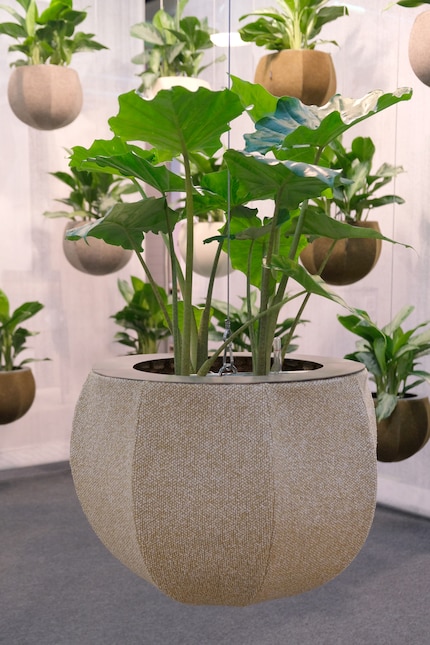
2. Articulated
The furniture from Nuok comes in camouflage, but still doesn't get lost due to the unusual design. The olive green only hides what they are actually made of: MDF wood, which can be embellished with graphic lines on request. All Nuok designs are made in Nänikon. Among them is the "Nevi" Plant Box, which can be used individually or as a group with tall plants to divide a room. It is available in different sizes and colours and stands on metal legs that the small interior label has welded by a metalworker from the same region.
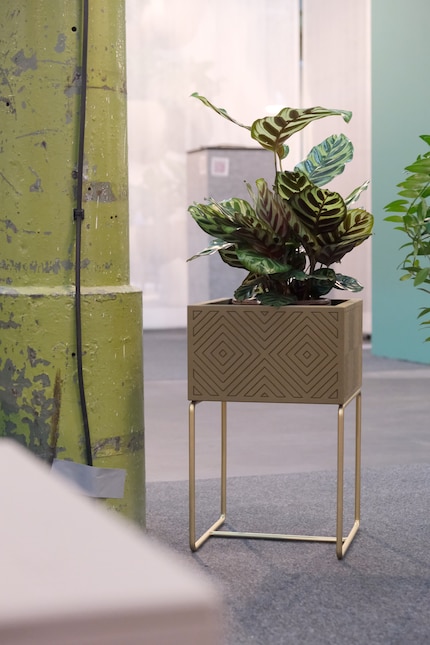
3. Radical
Extreme changes in the formal language of a label are rare. They are even rarer in the design of one and the same piece. The "radical Sihl chair" by Studio Krach is the exception. Its round seat contrasts harshly with the angular backrest. It is handmade from solid ash in a Zurich carpenter's workshop. On the occasion of the fair, the Kreuzzargen chair also received a hand-woven upholstery cover by the textile designer Vera Lynn, who is also based in Zurich. In addition to the radical design and the consistently local production, it is also striking how confidently the studio combines a wide variety of colours. Most people put a chair in the same colour four times at the dining table. But Studio Krach likes to bring four contrasting colours together, as in this example. With success: thanks to the restrained form, even foam pink, submarine yellow, deep blue and brook green harmonise with each other.
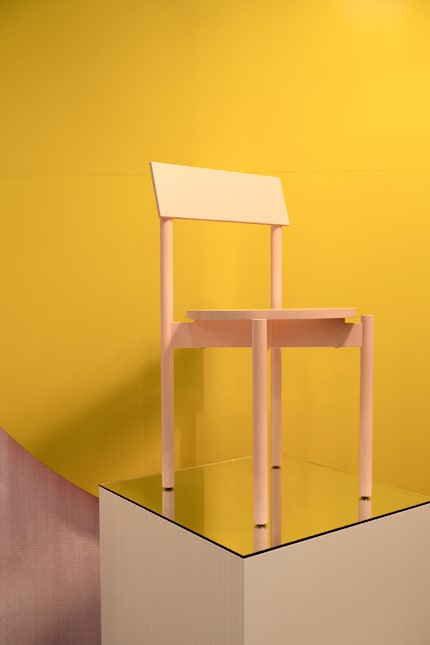
4. Natural
Marble is a classic. Nevertheless, some creative minds seem to have slowly grown tired of it. Increasingly, they are turning to an alternative that has fallen into oblivion over the years: travertine. The easy-to-work limestone is changeable and frost-proof. When it stands outside, it develops a unique patina. The Swiss furniture manufacturer Walter has made a coffee table from the material, for example. "Tivoli" stands on powder-coated metal legs that give the solid travertine tabletop a light, airy appearance. The natural stone can also be polished or coloured. Christian Haas did the latter for the first time for the "Matéria" lowboard series by the Munich brand Classicon with the colour Indigo. In this way, the pores on the surface are shown to better advantage and become decoration.
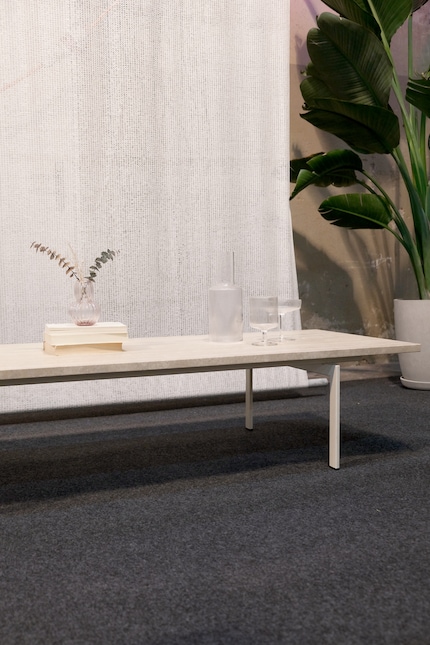
5. Stackable
Stacking one stool on top of another is nothing new. But stacking a stool on top of a bench to save space is. The Danish brand Form and Refine has designed the "Lightweight" furniture range with such a low weight that stacking is a breeze. This is an advantage in cramped living conditions or when vacuuming. In addition, the overlapping wooden slats are a visual highlight.
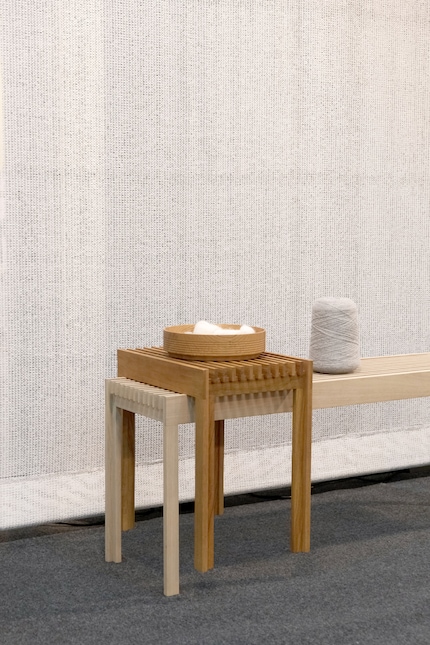
What surprised me about all the work of these design labels was, on the one hand, the courage to try something new in terms of interior design. On the other hand, that the majority is produced locally and everything by hand. This testifies to the fact that, in their eyes, design is quality in form and handling as well as an attitude that cannot be outsourced.
Like a cheerleader, I love celebrating good design and bringing you closer to everything furniture- and interior design- related. I regularly curate simple yet sophisticated interior ideas, report on trends and interview creative minds about their work.
From the latest iPhone to the return of 80s fashion. The editorial team will help you make sense of it all.
Show all